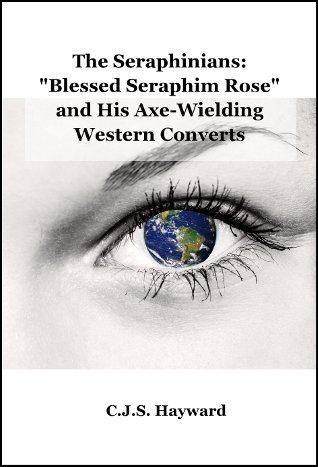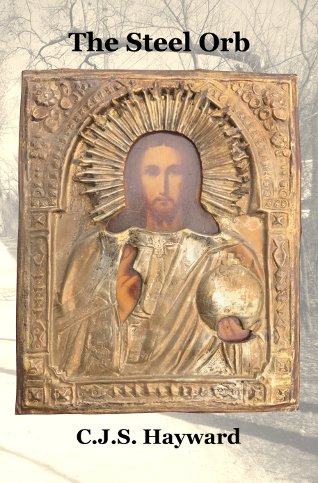QUICK! What Is Your Opinion About Chemistry?

Readers who also read the popular usability author Jakob Nielsen may have read him give a popularized version of "the query effect," which is essentially that even if people don't have an opinion on something before you ask, if you ask their opinion they will very quickly come to an opinion, share the newly formed with you, and walk away thoroughly convinced of the opinion they just shared.
I haven't actually done this, but if I were to waste people's time and perhaps get in trouble with clergy by taking a survey at church and ask them what their opinion of chemistry was, I would expect some hesitation and befuddlement, people being perhaps a bit uncertain about where the question was coming from or my motives for asking, but given a bit of time to answer, something like the following might be expected:
- It's hard.
- It's boring.
- It's fascinating.
- I think it's really cool that a chemist can take two beakers full of clear liquid and pour them together and have it turn colors.
- Our lives are so much better for things that need chemistry for us to be able to manufacture them.
- Chemistry is foundational to how we as a society have raped the environment.
- What difference chemistry makes depends on how you make use of it.
- Chemistry came from alchemy—I'm a bit more curious about alchemy!
- ...
Now what about an answer of "There are not hundreds of elements, e.g. hydrogen, helium, lithium, etc., but the original four elements: earth, air, fire, and water. Chemistry is intrinsically atheistic, and no Orthodox should believe it."?
Most readers may be even further confused as to where I may be going this, and suspect that the source of the opinion is occult, or deranged, or on drugs, or some combination of the above. But in fact that is the position of Church Fathers, although I will only investigate one of the Three Holy Heirarchs. In St. Basil's Hexaëmeron (Homily 1, 2, 3, 4, 5, 6, 7, 8, 9), in which we read:
Others imagined that atoms, and indivisible bodies, molecules and [bonds], form, by their union, the nature of the visible world. Atoms reuniting or separating, produce births and deaths and the most durable bodies only owe their consistency to the strength of their mutual adhesion: a true spider's web woven by these writers who give to heaven, to earth, and to sea so weak an origin and so little consistency! It is because they knew not how to say "In the beginning God created the heaven and the earth." Deceived by their inherent atheism it appeared to them that nothing governed or ruled the universe, and that was all was given up to chance.
Now a chemist who communicated well would be hard pressed to summarize chemistry (not alchemy) better in so few words as the opponents' position as summarized by St. Basil. Even if modern chemistry is developed in a great deal more detail and scientific accuracy than St. Basil's opponents. Compare the words of Nobel Prize laureate Richard Feynman, in the Feynman Lectures which are considered exemplars of excellent communication in teaching the sciences, in words that might as well have come from a chemist trying to explain chemistry in a single sentence:
If, in some cataclysm, all of scientific knowledge were to be destroyed, and only one sentence passed on to the next generation of creatures, what statement would contain the most information in the fewest words? I believe it is the atomic hypothesis that all things are made of atoms — little particles that move around in perpetual motion, attracting each other when they are a little distance apart, but repelling upon being squeezed into one another. In that one sentence, you will see, there is an enormous amount of information about the world, if just a little imagination and thinking are applied.
Feynman and St. Basil's summary of his opponents are saying the same thing, and almost with the same economy. St. Basil's description could be used as a pretty effective surrogate if Feynman's words here were lost.
If that is the case, what should we make of it? Well, let me mention one thing I hope doesn't happen: I don't want to see even one pharmacist (or as is said in the U.K., "chemist"), weeping, make the confession of a lifetime, stop using chemistry to ease the sick and the suffering, after the sobbing confession, "I thought I was an Orthodox Christian, but it turns out I was really an atheist all along!"
A sane reading of the Fathers would take a deep breath—or simply not need to take a deep breath—and recognize that something other than legalism is the wisest course for dealing with occasional passages in the Fathers that condemn chemistry, just like with the passages that claim a young earth.
Just like the passages that claim a young earth?
People in the U.S. who are not connected with Hispanic culture will often wonder that Mexicans, either in Mexico or the U.S., do not really celebrate Cinco de Mayo, and probably make less of a hubbub of what is assumed to be the the Mexican holiday. But, as my brother pointed out, "Cinco de Mayo legitimately is a Mexican holiday, but it's not on par with the U.S.'s Independence Day; it's on par with [the U.S.'s] Casamir Pulaski Day."
It is helpful in dealing with passages from the Fathers to recognize what are genuinely Independence Day topics and what are only Casamir Pulaski Day topics. Independence Day topics include repentance, theosis, Grace, hesychasm, and there tend to be numerous treatises devoted to them. Casamir Pulaski Day topics like rejection of chemistry as atheistic, or insisting on a young earth, may be agreed on, but I have not read or heard in thousands of pages of patristic writing where either topic is front and center. So far I have only found brief passages, generally among other passages condemning various opinions in ways that, when they touch scientific subjects, are a bit scattershot—much as when one is proceeding the wrong way—as regards contributing to any useful and coherent way of evaluating modern science.
I'm not going to condemn believing in a young earth as it is a very easy conclusion to reach and it is shared among many saints. But I will suggest that even the conceptual framework of having an origins position is strange and not helpful, as it is spiritually really not that helpful to weigh in on whether chemistry makes you an atheist. We're making a really big deal of a Mexican Casamir Pulaski Day, much to the confusion of those connected with Méjico!
Mainstream origins positions
Let me briefly comment on the mainstream origins positions held by Orthodox. Some things are non-negotiable; among them being that God created the world and that the human race is created in the image of God. Atheism, naturalism or materialism is not acceptable, with or without connection to evolution. The Ancient Near East and pagan Greek philosophy hold to various opinions which are not to be accepted: among these are that a hero or god fought a dragon or demon and ripped her body in half, making half into the sky and half into the earth; that the universe was created by divine sexual activity in a fashion that need not be described to Orthodox Christians; that the world has always existed and is as uncreated as God; and that the world is an emanation from God (divine by nature in a diluted form), in classical pantheistic fashion. All of these are to be rejected, but I am not aware of a camp among today's Orthodox, nor have I encountered a single Orthodox follower, for these kinds of positions. And none of these seem to really overlap any mainstream position.
Among mainstream positions, let me enumerate the following. This excludes being completely not sure, finding the whole question messy and hesitating between two or more basic options (where I am now), and a few others. As far as I know, this list covers all encounters where I have seen a definite position taken by Orthodox. (Some or all of these positions may admit varieties and clarification.)
- 1: The saints believed in a young earth and that's how I read Genesis.
- If you believe this, and don't go further or mix it with anything non-Orthodox, this is fine.
- 2: I believe in an old earth where God miraculously intervened by creating new life forms over time.
- This position is now backed by intelligent design movement texts, such as Philip Johnson's Darwin on Trial. The downside, at least as explained to me by two very hostile Orthodox theistic evolutionists who shut me down before I could make my point instead of letting me make my point and then refuting it, is that the new intelligent design movement was concocted by the Protestant creationist Discovery Institute to attract people not attracted by young earth creationism's handling of science. Like the position that follows, most of its followers don't jackhammer people who disagree.
- 3: I'm not a scientist, but I believe God could have done it through evolution.
- This option, theistic evolution, is perfectly permissible, but I wince as it usually means "I'm coming to terms with the science of a hundred years ago."
One hundred years ago, evolution was a live option in the academy. Now people still use the term, but its meaning has been gutted and any belief that life forms slowly evolve into different life forms has been dead so long that it has long since stopped even smelling bad. The evidence (the "evolutionary" term being "punctuated equilibrium" or "punk eek") is that the fossil record shows long periods of great stability without real change in what kind of organisms there, abruptly interrupted by geological eyeblinks and the sudden appearance and disappearance of life forms. Or as my "University Biology" teacher at the Illinois Mathematics and Science Academy said, "Evolution is like baseball. There are long periods of boredom interrupted by brief moments of intense excitement."
This option registers to me as a genuinely comfortable assent to science, but without awareness that the science in question has changed profoundly in the past hundred years.
But I wish to underscore: theistic evolution is (usually) an "I won't drop the hammer on you" signal, and that is an excellent kind of signal.
- 4: I am a scientist, and I believe God probably worked through evolution.
- My experience with this has not been the most pleasant; in one case behind the open hostility and efforts to shut me down from arguing (and rudely stop me before I could make my point at all instead of letting me make my point and then explain its flaws) may have lurked an uneasiness that I represented enough authority that I was intrinsically a threat to their certitude that scientific evidence pointed to "evolution" (as the term has been redefined in the sciences of today).
With that stated, I have known several Orthodox physicians, and I expect some of them after extensive evolution-laden biology classes would lean towards theistic evolution. However, I'm not sure as they generally seemed more interested in knowing, for instance, if I was having a nice day, than convincing me of their views about origins.
(I don't remember any clergy or heirarch who was above me bringing up origins questions, although they have been willing to offer their thoughts if requested; "I'm not a scientist, but I believe God could have done it through evolution" is the most frequent opinion I've seen even among conservative clergy. Priests seem to be focused on bigger questions, like "What hast thou to confess?")
All four opinions above are at least tolerable, but there is one additional common opinion that takes "problematic" to a whole new level:
- 5: God created a young earth and we know because Creation Science proves it.
- I am perhaps biased by my frustrating experience with this crowd. I've had people offer to straighten out my backwards understanding of science whose understanding of science was so limited that I could not lead them to see when I was making a scientific argument, as opposed to just arbitrarily playing around with words. I have an advanced degree from a leading institution and a lot of awards. I am not aware of any of the people who sought to do me the favor of straightening out my backwards views on science as having a community college
learner's permitassociate's degree in any of the sciences.The assertion is made that Creation Science is just science (after all, how could it not, if it has "Science" in its name?). A slightly more astute reader might listen to artificial intelligence critic John Searle's rule of thumb that anything with the word "science" in its name is probably not a science: "military science," "food science," "Creation Science", "cognitive science." My best response to people who think Creation "Science" is science in the usual sense of the term, is to say that "Creation Science is real, legitimate science" is wrong, in the same way, for the same reason, as saying "Pro-choice Catholics are real, legitimate Catholics". Pro-choice "Catholics" do not understand, appreciate, respect, or accept what it means to be a Catholic; Creation "scientists" do not understand, appreciate, respect, or accept what it means to be a scientist. Not only do Scientists and Catholics not accept the obnoxious intrusion, but arguing is pointless and brings to mind Confucious's warning, "It is useless to take counsel with those who follow a different Way."
The problem with Creation Science is not that it is not science. It is painfully obvious to those outside of the movement that it is a feature of the Protestant landscape, perhaps a Protestantism of yesteryear rather than Protestantism today: Wheaton College, which is quite arguably the Evangelical Vatican, has something like three young earth creationists on its faculty, and I have never heard the one I know even mention Creation Science—he only claims to accept a young earth from reading and trusting the Bible), and the origin and nature of Creation Science are well described by a leading Evangelical scholar of Evangelicalism, Mark Noll in The Scandal of the Evangelical Mind.
Kiddies, if you're going to take one feature of Protestantism and incorporate it into Orthodoxy, take Bible studies, or My Utmost for His Highest, or some other genuine treasure that tradition has produced. It would be better to do neither, of course, but those are better choices. Taking Creation Science from Evangelicalism is like robbing Evangelicalism in a blind alley, and all you take away is its pocket lint!
More than one person who have held this last position have called into question whether I should be calling myself an Orthodox Christian at all because I didn't believe in a young earth. And I really think that's a bit extreme. In twelve years of being Orthodox, I have on numerous occasions been told I was wrong by people who were often right. I have been told I was wrong many times by my spiritual father, by other priests, and by laity who usually have had a little bit more experience, and I suspect that future growth will fueled partly by further instances of people pointing where I am wrong. However, when I was newly illumined and my spiritual father said that what I had just said sounded very Protestant, he did not thereby call into question whether I should be calling myself an Orthodox Christian. The only context in the entirety of my dozen years of being Orthodox that anybody has responded to my words, faith, belief, practice, etc. by directly challenging whether I should be calling myself an Orthodox Christian at all, was Seraphinians who were exceedingly and sorely displeased to learn I did not share their certain belief in a young earth. This seems to say little about my weaknesses (besides that I am the chief of sinners), and a great deal more about an unnatural idol that has blown out of all proportions. The Casamir Pulaski day represented by the theologoumenon of a young earth has completely eclipsed every Independence Day question on which I've been wrong, from my early ecumenism (ecumenism has been anathematized as a heresy), to a more-inappropriate-than-usual practice of the Protestant cottage industry of archaeologically restoring the early Church. In both cases my error was serious, and I am glad clergy out-stubborned me as I did not give in quickly. But they refrained from casting doubt on whether I should be calling myself an Orthodox Christian; they seem to have seen me as both a nascent Orthodox and wrong about several things they would expect from my background. Really, we do need Church discipline, but isn't dropping that sledgehammer on people who don't believe a young earth a bit extreme?
I'll not return the insult of casting doubt on whether they're Orthodox; I don't see that this option is acceptable, but I believe it is coherent to talk about someone who is both Orthodox and wrong about something major or minor. I believe that Creation Science is a thoroughly Protestant practice (that it is not science is beside the point), and militantly embracing Creation Science is one of the ways that the Seraphinians continue a wrong turn.
The position of Creation "Science" in relation to genuine science is the same as the relation between a non-canonical jurisdiction and the Orthodox Church. Even (or especially) if they have the word "Genuine" written right into their name!
But quite apart from that, the question of origins as I have outlined it is itself a heritage from Protestantism. Evangelicals once were fine with an old earth, before Evangelicals created today's young earth creationism; the article Why young earthers aren't completely crazy talks with some sympathy about the Evangelical "line in the sand;" Noll tells how it came to be drawn. The fact that it can be a relatively routine social question to ask someone, "What is your opinion about origins?" signals a problem if this Protestant way of framing things is available in Orthodoxy. It's not just that the Seraphinian answer is wrong: the question itself is wrong, or at least not Orthodox as we know it now. Maybe the question "Did God create the entire universe from nothing, or did he merely shape a world that has always existed and is equally uncreated with him?" is an Independence Day question, or something approaching one. The questions of "Young or old earth?" and "Miraculous creation of new species or theistic evolution?" are Casamir Pulaski Day questions, and it is not helpful to celebrate them on par with Independence Day.
One friend and African national talked about how in her home cultural setting, you don't ask a teacher "What is your philosophy of education?" as is routinely done in the U.S. for teacher seeking hire who may or may not have taken a single philosophy class. In her culture, that question does not fit the list of possibles et pensables, what is possible and what is even thinkable in that setting. (This whole article has been made to introduce a concept not readily available in the possibles et pensables of our own cultural setting, that having a modern style of "origins popsition" at all is not particularly Orthodox; and that some positions, even or especially among conservatives, are even more problematic. A transposition to chemistry helps highlight just how strange and un-Orthodox certain positions really are.) And let us take a look at Orthodox spiritual fathers. As advised in the Philokalia and innumerable other sources, if you are seeking a spiritual father, in or out of monasticism, you should make every investigation before entering the bond of obedience; after you have entered it, the bond is inviolable. I don't know exactly how Orthodox have tried spiritual fathers, but I have difficulty imagining asking a monastic elder, "What is your personal philosophy of spiritual direction?" Quite possibly there is none.Even thinking about it feels uncomfortably presumptuous, and while theological opinion does exist and have a place, defining yourself by your opinions is not Orthodox.
If I were to ask someone in the U.S. "What are your family traditions for celebrating Casamir Pulaski Day?" the best response I could get would be, "Cas-Cashmere WHO?"
And now I will show you a more excellent way
I feel I may be sending a very mixed message by the amount I have written in relation to origins questions given that my more recent postings keep downplaying origins debates. Much of what I have written has been because I don't just think certain answers have flaws; the questions themselves have been ill-framed.
But that isn't really the point.
These pieces are all intended to move beyond Casamir Pulaski Day and pull out all of the stops and celebrate Independence Day with bells on. They may be seen as an answer to the question, "Do you have anything else to discuss besides origins?" If you read one work, Doxology is my most-reshared.
- 1. Doxology
- How shall I praise thee, O Lord?
For naught that I might say,
Nor aught that I may do,
Compareth to thy worth.
Thou art the Father for whom every fatherhood in Heaven and on earth is named,
The Glory for whom all glory is named, - 2. A Pilgrimage from Narnia
- Wardrobe of fur coats and fir trees:
Sword and armor, castle and throne,
Talking beast and Cair Paravel:
From there began a journey,
From thence began a trek,
Further up and further in! - 3. God the Spiritual Father
-
I believe in one God, the Father, Almighty...
The Nicene Creed
All of us do the will of God. The question is not whether we do God's will or not, but whether we do God's will as instruments, as Satan and Judas did, or as sons, as Peter and John did. In the end Satan may be nothing more than a hammer in the hand of God.
C.S. Lewis, paraphrased
- 4: Akathist to St. Philaret the Merciful
- To thee, O camel who passed through the eye of the needle, we offer thanks and praise: for thou gavest of thy wealth to the poor, as an offering to Christ. Christ God received thy gift as a loan, repaying thee exorbitantly, in this transient life and in Heaven. Rejoice, O flowing fountain of Heaven's treasures! (Repeated thrice.)
- 5: A Pet Owner's Rules
- God is a pet owner who has two rules, and only two rules. They are:
- I am your owner. Enjoy freely the food and water which I have provided for your good!
- Don't drink out of the toilet.
- 6: The Orthodox Martial Art Is Living the Sermon on the Mount
-
A look at India in relation to my own roots and formation
My live story up until now would be immeasurably impoverished if the various ways in which India had entered my life would simply be subtracted. I appreciate Indian food, even if I eat it in a non-Indian (Paleo) fashion. And that is not trivial, but there are deeper ways I've been enriched by that great nation. One of these relates to pacifism, where one of India's giants, one certain Gandhi, is perhaps the best-known person in history as I know it for the strength of pacifism.
- 7: Silence: Organic Food for the Soul
- We are concerned today about our food,
and that is good:
sweet fruit and honey are truly good and better than raw sugar,
raw sugar not as bad as refined sugar,
refined sugar less wrong than corn syrup,
and corn syrup less vile than Splenda.
But whatever may be said for eating the right foods,
this is nothing compared to the diet we give our soul. - 8: Repentance, Heaven's Best-Kept Secret
- I would like to talk about repentance, which has rewards not just in the future but here and now. Repentance, often, or perhaps always for all I know, bears a hidden reward, but a reward that is invisible before it is given. Repentance lets go of something we think is essential to how we are to be—men hold on to sin because they think it adorns them, as the Philokalia well knows. There may be final rewards, rewards in the next life, and it matters a great deal that we go to confession and unburden ourselves of sins, and walk away with "no further cares for the sins which you have confessed." But there is another reward that appears in the here and now...
- 9: Why This Waste?
- "Why This Waste?" quoth the Thief,
Missing a pageant unfold before his very eyes,
One who sinned much, forgiven, for her great love,
Brake open a priceless heirloom,
An alabaster vessel of costly perfume,
Costly chrism beyond all price anointing the Christ,
Anointing the Christ unto life-giving death,
Anointed unto life-giving death,
A story ever told,
In memory of her: - 10: The Transcendent God Who Approaches Us Through Our Neighbor
-
The temperature of Heaven can be rather accurately computed from available data. Our authority is the Bible: Isaiah 30:26 reads, Moreover the light of the Moon shall be as the light of the Sun and the light of the Sun shall be sevenfold, as the light of seven days. Thus Heaven receives from the Moon as much radiation as we do from the Sun and in addition seven times seven (forty-nine) times as much as the Earth does from the Sun, or fifty times in all.
- 11: Open
- How shall I be open to thee,
O Lord who is forever open to me?
Incessantly I seek to clench with tight fist,
Such joy as thou gavest mine open hand. - 12: The Angelic Letters
- My dearly beloved son Eukairos;
I am writing to you concerning the inestimable responsibility and priceless charge who has been entrusted to you. You have been appointed guardian angel to one Mark.
Who is Mark, whose patron is St. Mark of Ephesus? A man. What then is man? Microcosm and mediator, the midpoint of Creation, and the fulcrum for its sanctification. Created in the image of God; created to be prophet, priest, and king. It is toxic for man to know too much of his beauty at once, but it is also toxic for man to know too much of his sin at once. For he is mired in sin and passion, and in prayer and deed offer what help you can for the snares all about him. Keep a watchful eye out for his physical situation, urge great persistence in the liturgical and the sacramental life of the Church that he gives such godly participation, and watch for his ascesis with every eye you have. Rightly, when we understand what injures a man, nothing can injure the man who does not injure himself: but it is treacherously easy for a man to injure himself. Do watch over him and offer what help you can.
With Eternal Light and Love,
Your Fellow-Servant and Angel
Happy Independence Day! Enjoy the fireworks display.






